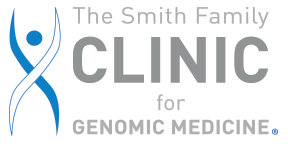Whole genome sequencing (WGS) is a test that is entering routine clinical practice. The test is designed to determine the entire genetic makeup of an individual by sequencing the entire genome. This test is ushering in the era of personalized medicine.
WGS identifies several million variants in an individual that differ from the reference genome. Most of these variants are benign, but a small number of variants are pathogenic. The effect on human health of a large number of variants has not been established, so they are referred to as variants of uncertain significance.
Current knowledge as it is used to make these interpretations differs depending on the gene containing the variant and the type of variant involved. Some genes are well known to us, while others have not been as well studied. At present, about a quarter of genes have been connected to human disease. Over time we will connect more and more of the remaining genes to disease. Those new discoveries are why periodic reanalysis of a patient with a ‘negative’ WGS result is valuable.
The HudsonAlpha Clinical Services Lab, LLC, will be the sequencing lab for The Smith Family Clinic for Genomic Medicine. Through the Genome Gateway, families should provide the laboratory with information from the patient’s medical record, including history, family history, examination and laboratory tests. The ability of the laboratory to accurately assess a patient’s genome is dependent on the quality of the clinical information that is provided.
In the process of analyzing a genome, the laboratory may identify an incidental or secondary finding, which is a pathogenic variant that is not connected to the patient’s phenotype. For example, an analysis of a child with a seizure disorder may uncover a pathogenic variant in BRCA1, a gene associated with hereditary breast cancer. Families should be aware that whole genome sequencing may uncover incidental findings and that test results may have a bearing on a number of family members. The Smith Family Clinic’s physicians and genetic counselors will discuss with patients and their families whether their family wishes to have incidental findings returned.
There is no such thing as a perfect genetic test, and although genome sequencing is detailed, it cannot detect all types of genetic variation. For example, trinucleotide repeat disease including fragile X syndrome, Huntington disease, a variety of ataxia and others are not well assessed by WGS. A negative result on a genome sequencing test does not rule out the possibility of a genetic condition.
To reach the HudsonAlpha Clinical Services Lab, LLC., directly, call 256.327.9670 or visit www.clinicallab.org

